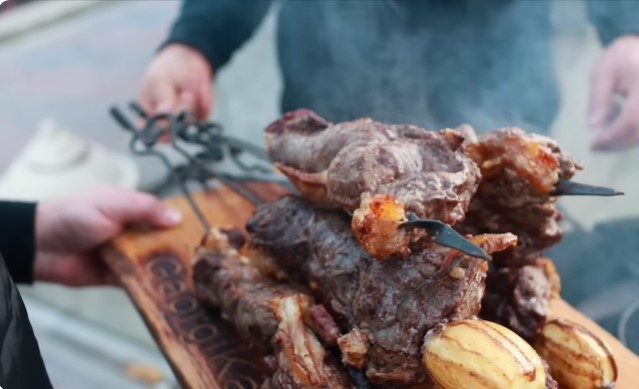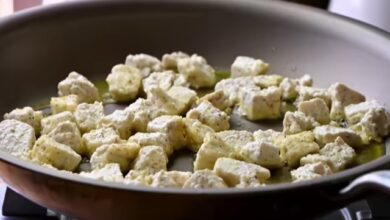Is Camel Meat Halal
Camel meat has been a staple in many cultures, particularly in regions where camels are integral to daily life. However, questions about its permissibility in Islamic dietary laws often arise. This article delves into the details of whether camel meat is halal, considering religious, cultural, and health aspects.

Introduction
When discussing halal dietary laws in Islam, a common query is, “is camel halal?“. This question has deep roots in the traditions and teachings of Islam. Camels have historically been vital in many Muslim-majority regions, not only as beasts of burden but also as sources of meat and milk. As such, understanding the permissibility of consuming camel meat involves exploring religious texts, historical practices, and modern culinary trends. This article aims to provide a comprehensive look at the subject, encouraging readers to appreciate the nuanced perspectives within Islamic jurisprudence and cultural practices.
Camel Meat in Islamic Dietary Guidelines
Islamic dietary laws, as outlined in the Quran and Hadith, permit the consumption of camel meat. According to Islamic teachings, for meat to be considered halal, the animal must be healthy, slaughtered in the name of Allah, and the blood must be completely drained. Camels meet these criteria, making their meat permissible for consumption.

Religious Texts and Historical Context
The Quran and Hadith provide ample evidence supporting the consumption of camel meat. The Quran mentions camels as lawful for Muslims to eat. Additionally, there are numerous Hadiths where the Prophet Muhammad (peace be upon him) is recorded to have consumed and approved of camel meat. These texts highlight the camel’s significance and ensure its status as halal.
Cultural and Regional Practices
In many Muslim-majority countries, particularly in the Middle East, Africa, and parts of Asia, camel meat is a traditional and respected food. It is often featured in celebratory meals and religious festivals such as Eid al-Adha, where the sacrifice of camels is a common practice. The cultural acceptance of camel meat further underscores its permissibility within Islamic dietary laws.
Health and Nutritional Benefits
Camel meat is not only permissible but also beneficial. It is a lean meat rich in protein and low in fat, making it a healthy option. It contains essential nutrients such as iron, zinc, and vitamins. Furthermore, camel milk, often consumed alongside the meat, is highly nutritious and beneficial for health.
Taste and Culinary Uses
Camel meat has a unique taste that can be described as a cross between beef and lamb but with its distinct flavor. It is often used in traditional dishes such as camel stew, kebabs, and even modern recipes like camel burgers. Its versatility makes it a sought-after ingredient in both traditional and contemporary cuisines.
The Halal Certification Process
Ensuring that camel meat is truly halal involves rigorous certification processes. Halal certification guarantees that the meat adheres to Islamic dietary laws throughout its production, from slaughter to processing. This certification is crucial for Muslim consumers, providing them with confidence and assurance about the meat they consume.
Where to Buy Camel Meat
Camel meat can be purchased from specialized butchers and halal meat markets. It is increasingly available in grocery stores that cater to Middle Eastern and North African communities. Additionally, with the rise of online halal meat providers, purchasing camel meat has become more accessible to consumers worldwide.
FAQs
Is camel meat considered halal in Islam?
Yes, camel meat is generally considered halal for consumption according to Islamic dietary guidelines.
Are all parts of a camel halal to eat?
Yes, all parts of a camel are considered halal as long as they are prepared according to Islamic dietary laws.
What makes camel meat halal?
Camel meat is halal if the animal is healthy, slaughtered in the name of Allah, and the blood is fully drained.
Is there a difference in taste between camel meat and other meats?
Camel meat has a unique taste, often described as a cross between beef and lamb, but with its distinct flavor.
Are there any health benefits to eating camel meat?
Yes, camel meat is lean, high in protein, and contains essential nutrients like iron, zinc, and vitamins.
How is camel meat traditionally cooked?
Camel meat is commonly used in stews, kebabs, and roasts. It is also featured in modern recipes like camel burgers.
Where can I buy camel meat?
Camel meat can be found in specialized halal butchers, Middle Eastern grocery stores, and online halal meat providers.
Is camel meat consumed during any specific Islamic festivals?
Yes, camel meat is often consumed during Eid al-Adha, where camels are sacrificed in commemoration of the Prophet Ibrahim’s willingness to sacrifice his son.
Does camel meat require special preparation methods?
Camel meat should be prepared according to halal guidelines, which include proper slaughtering methods and ensuring all blood is drained.
Is camel milk also halal?
Yes, camel milk is halal and is often consumed alongside camel meat.
Are there any specific hadiths that mention camel meat?
Yes, there are several hadiths where the Prophet Muhammad (peace be upon him) consumed and permitted camel meat.
What are the nutritional benefits of camel milk?
Camel milk is rich in vitamins, minerals, and proteins, and is known for its health benefits.
Can camel meat be part of a healthy diet?
Yes, due to its low fat and high protein content, camel meat can be a part of a balanced and healthy diet.
Is camel meat popular in Western countries?
Camel meat is becoming more popular in Western countries due to its health benefits and unique taste.
Are there any environmental benefits to camel farming?
Camel farming is considered sustainable as camels require less water and forage compared to other livestock, making it an environmentally friendly option.
In conclusion, camel meat is halal and permissible for Muslims, provided it meets the necessary dietary laws. Its cultural, nutritional, and environmental benefits make it a valuable addition to the global culinary landscape. Whether for traditional dishes or modern recipes, camel meat continues to be a versatile and healthy choice for consumers.





